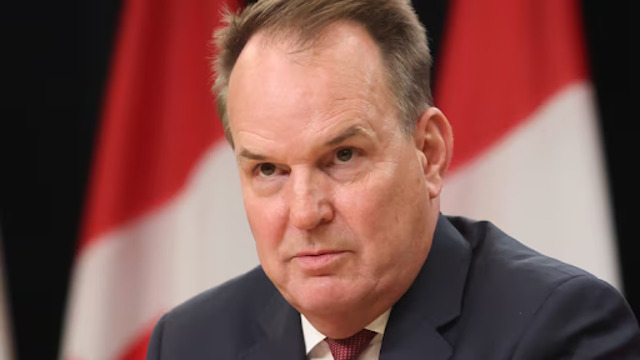
Wilbur Ross, who was the U.S. secretary of commerce under Donald Trump from 2017 to 2021, warned that imposing taxes on Canadian energy would drive up costs in the United States and impact American jobs. (Photo by Saul Loeb/AFP/Getty Images)
Wilbur Ross, who served as U.S. Commerce Secretary under former President Donald Trump, stated he couldn’t see Trump imposing taxes on Canadian energy. Speaking on CBC’s Rosemary Barton Live, Ross expressed that taxing energy imports from Canada would not benefit American workers or lower costs, as Canada is a significant supplier of energy to the U.S.
Ross’s comments come amid speculation about Trump’s potential policies if he returns to the presidency in January, including the 10% global tariff he discussed during his campaign. Since Trump’s election victory, Canadian officials and industry leaders have been on high alert, preparing for the potential impact on trade.
Reports indicate Canadian officials did not receive any firm guarantees during conversations with Trump’s allies before the election, signalling uncertainties for the future. Ontario and Alberta, which would be particularly vulnerable to such tariffs, have already started efforts to influence the incoming U.S. administration. Vic Fedeli, Ontario’s Minister of Economic Development, announced plans for a marketing campaign starting in January to underscore the importance of Canada-U.S. trade relations. Similarly, Alberta’s representative to the U.S., James Rajotte, is reaching out to American lawmakers to highlight the interconnected nature of North American energy trade.
Alberta’s oil and gas industry, which accounts for $127 billion in U.S. trade annually, making up 82% of its total exports, is particularly concerned about any new barriers. Rajotte emphasized the need to maintain open energy trade between Canada and the U.S. to preserve economic security for both countries.
Kirsten Hillman, Canada’s ambassador to the U.S., mentioned that Canadian officials have laid substantial groundwork to discuss policy with Trump’s team. She acknowledged that Trump views tariffs as a strategic policy tool but stressed the importance of proving that taxing Canadian goods would hurt U.S. jobs and economic performance.
Ross noted that Trump would likely be open to hearing Canada’s concerns, advising Canadian leaders to identify potential areas of collaboration. He emphasized that the U.S. has stronger policies now compared to before and that any productive relationship would require mutual concessions. Despite past conflicts between Trump and Prime Minister Justin Trudeau, Ross believed that Trump respected Trudeau and other world leaders.
The past relationship between the two leaders has seen tension, most notably during the 2018 G7 summit in Quebec, where Trump called Trudeau “dishonest” and “weak” amid NAFTA renegotiations. Despite these incidents, Ambassador Hillman pointed out that Trump’s actions, not just his rhetoric, should be noted. She believed that the U.S.-Canada partnership had been effective in the past and was optimistic it could be so again.
Trudeau’s recent phone call to congratulate Trump on his election win was described as friendly, with discussions on trade and security. A source familiar with the conversation indicated that the tone was positive, suggesting a possible path forward for U.S.-Canada relations.















